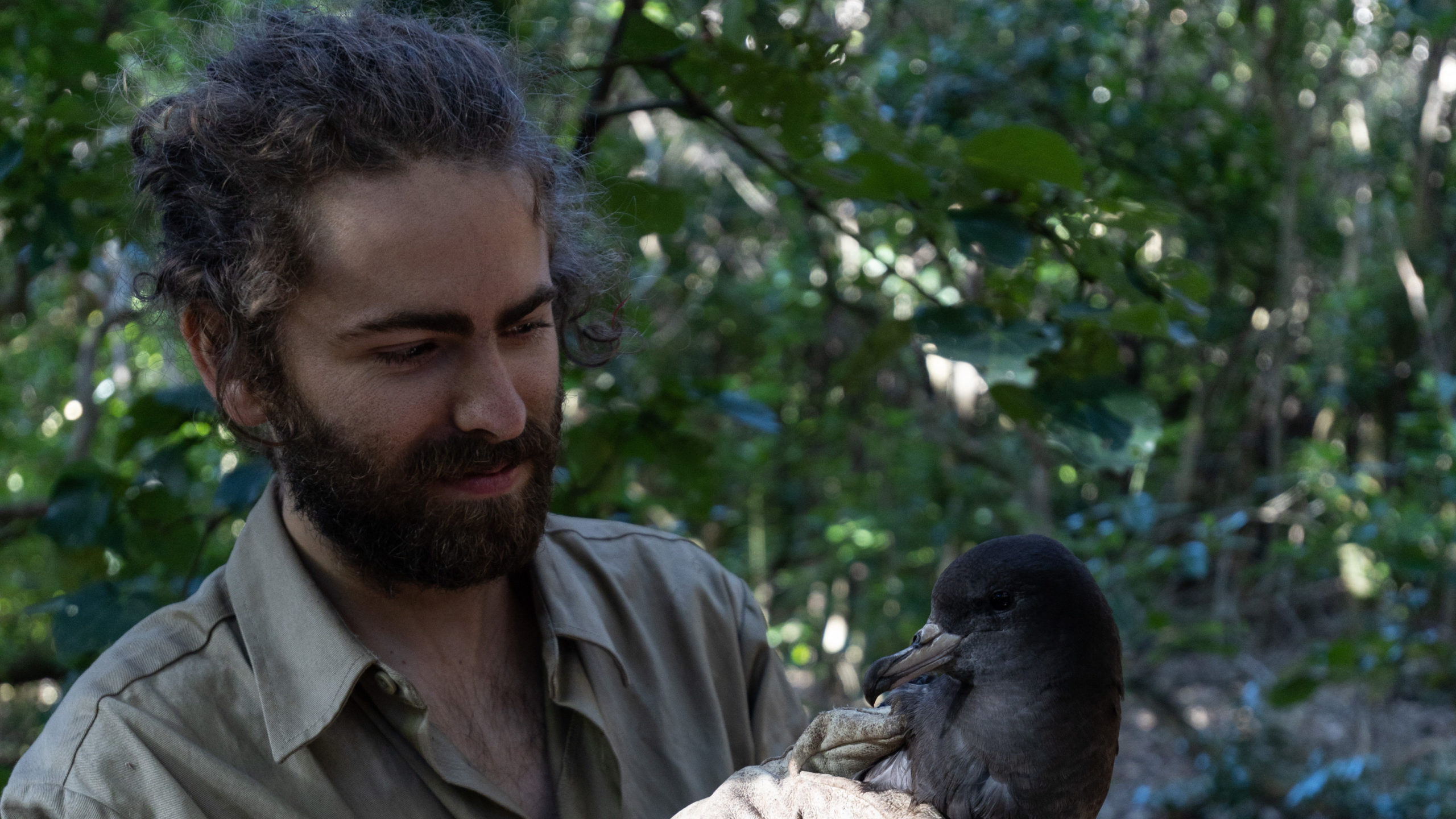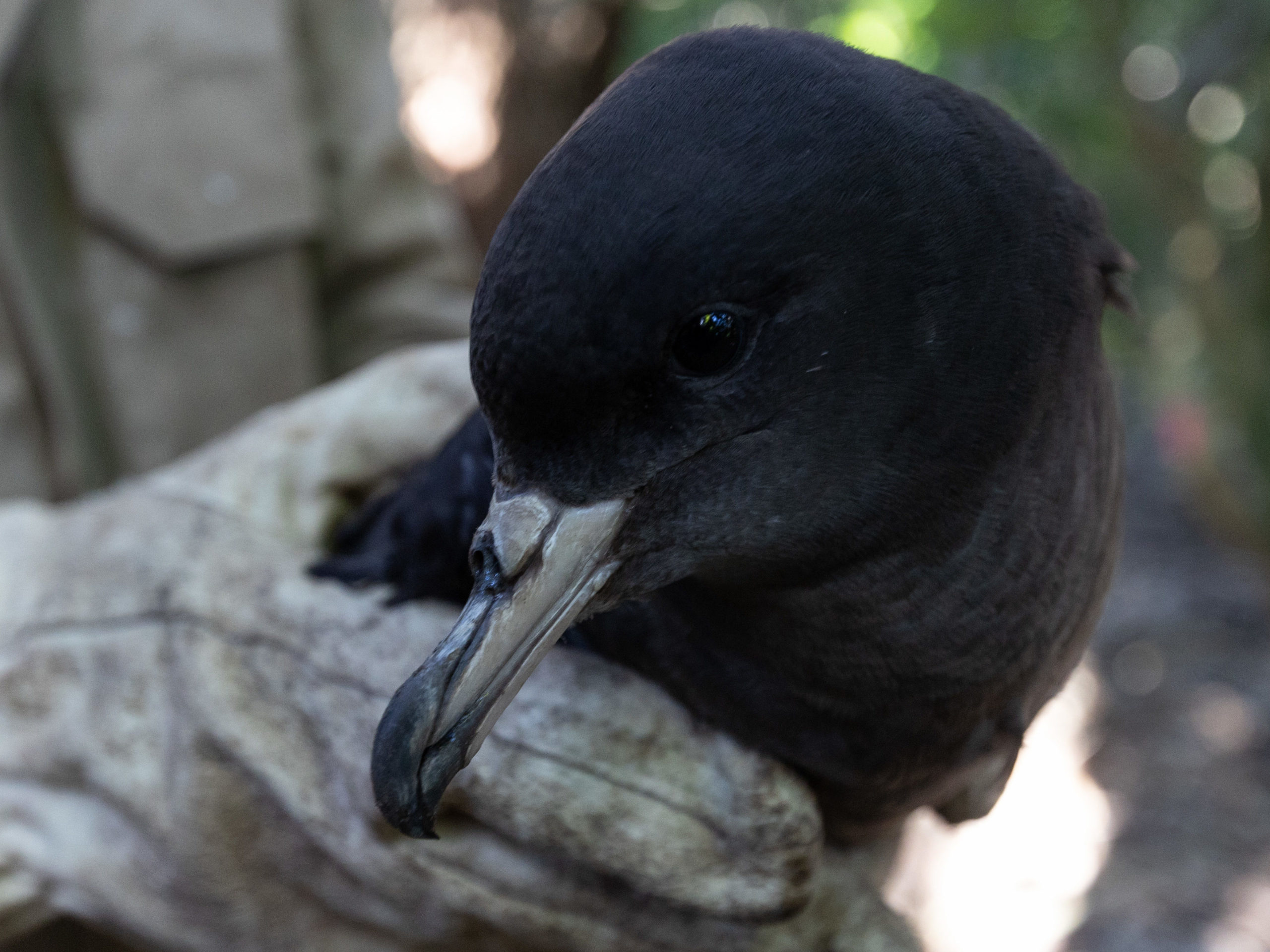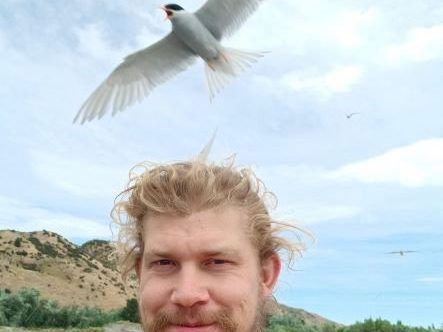Experienced predator control specialists are in hot demand, and we’ll need even more to successfully achieve the Predator Free NZ vision.

The Predator Free Apprentice Programme was formed to help fill this gap, and provide a career path for people wanting to work in predator control and eradication. The programme is funded by DOC Jobs for Nature and places apprentices with experienced pest control specialist organisations.
Two years into the programme, the first batch of apprentices are graduating – and the results are inspiring. We spoke to two of the recent graduates to find out more about their experiences on the programme, and where they see themselves in the future.
A foot in the door

Simon Lamb says the apprenticeship programme found him – while job hunting, he came across Wildlife Management International, based in Blenheim. When a job opened up, it was for an apprentice role. He started work in the busy summer season and hasn’t looked back since.
“Basically, I just got stuck in doing all sorts of ecology-related conservation field stuff – a lot of trips, a lot of eradication work on the Miramar Peninsula in Wellington, some seabird work up on Aotea (Great Barrier Island).”
Simon also spent time on Ohinau Island off the Coromandel monitoring toanui (flesh-footed shearwaters). Through hands-on fieldwork to estimate their breeding success, he and his colleagues are helping to build a better understanding of how the birds’ breeding season works.
One of the highlights for Simon was meeting the other apprentices along the way, including at Predator Free New Zealand Trust workshops, where they got together to build networks and exchange ideas.
Coming into the apprenticeship, Simon had a background in behavioural ecology, and had previously worked at the Zoology Department at Otago University as a part-time research assistant. His apprenticeship finished in December, but he has stayed on at WMIL with a full-time contract.
What would he like to work on in the future? Having tried eradication work in a more urban environment, he’s keen to get engaged in more aspects of eradication, perhaps on offshore islands. He’s also interested in more seabird work.
“I feel like the apprenticeship scheme was a good eye-opener to different possibilities.”
Putting in the hard yards

Keegan Miskimmin also spent his apprenticeship at Wildlife Management International. He has a background in zoology and conservation, and when he was looking for jobs, he felt the urge to get more involved in species monitoring and predator control.
“I understand that being able to do all the cute and fluffy stuff only comes by putting in the hard yards of doing predator control work. WMIL appealed to me because it had that research component and monitoring of the species and the trapping. I thought it was a perfect union of the two.”
One aspect of the job that he likes is the ever-changing workday. There’s a lot of travel, and work can be anything from checking trapping lines, going to an offshore island to do seabird monitoring, data analysis and report writing, or a day trip to Nelson to help a volunteer community group.
For Keegan, the biggest highlight was travelling overseas to Guernsey and Rathlin Island, and being able to share WMIL’s pest eradication expertise internationally. Another highlight was leading a project monitoring tarapirohe (black-fronted terns) in Hanmer Springs.
While an apprentice, he has benefited from a wide range of training opportunities from pack-rafting courses and 4-wheel drive training to pre-hospital emergency care for first-aid – essential when working somewhere isolated.
Keegan says that sometimes in conservation work, you wonder if what you are doing matters, but meeting up with the other apprentices and host organisations showed him there’s a whole group of people that have the same ethos.
“It’s a really cool way to be part of something bigger.”

